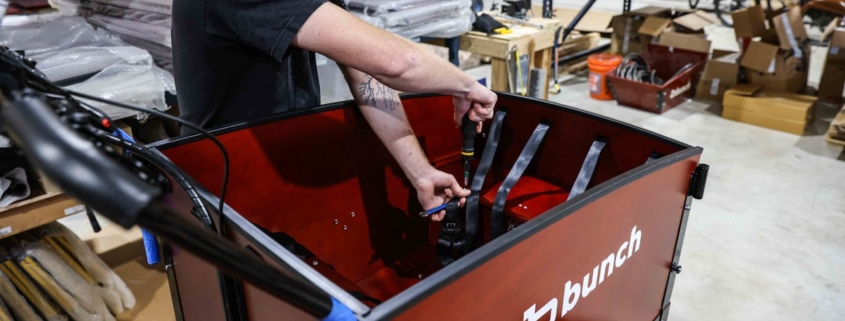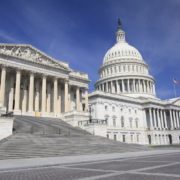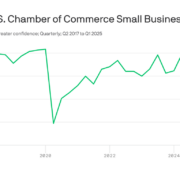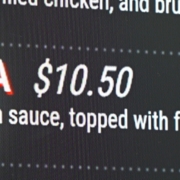How a small business in Denton is being harmed by higher tariffs
Among myriad American businesses trying to manage the tariff deluge unleashed by President Donald Trump is Denton-based Bunch Bikes. Founded nearly a decade ago, the company assembles and sells electric cargo bicycles.
With only eight employees, it’s the definition of a small business — and it’s already getting hammered by Trump’s tariffs. The company wrote in an April 4 blog post that its tariff costs are over $1,100 higher per bike than a year ago (and have spiraled higher in the days since then).
How does a company survive in such an environment?
As an enthusiast of both cycling (I own a Bunch Bike) and trade policy, I contacted the company to learn more about what it’s going through. That led to a conversation with CEO Aaron Powell. The frustration in his voice was palpable.
Powell explained that building a Bunch bike involves sourcing 120 components, all produced overseas, and some available only in China. Simply shifting production to the United States to escape tariffs isn’t an option. Producing frames domestically might be possible, but what about highly specialized parts such as pedals, brakes, and chains? The supply chain for those components doesn’t exist in the United States and isn’t likely to anytime soon.
There’s also the issue of quality. Even if an alternative supplier outside of China can be located, finding one that matches his previous supplier’s craftsmanship and reliability is not assured. And it almost certainly won’t happen quickly.
According to Powell, six months would probably be the minimum for developing an alternative supply chain. A year would be even better.
Indeed, Powell noted that tariffs aren’t his only problem. His company also has to contend with the erratic nature of U.S. trade policy under Trump, in which tariffs are announced but then paused. And then raised. Perhaps they are just bargaining chips as part of a negotiation … or not. Long-term planning, he explained, is nearly impossible in such an environment.
“Can I move to a country or not?” he asked. “How do I know which countries will receive lower tariffs and which ones won’t? If I leave China and my choices are Poland, Portugal, Vietnam, and Cambodia, which one do I pick?”
Until alternative suppliers can be found and a new supply chain developed, Bunch Bikes will be stuck with a sky-high tariff bill. According to Powell, not all of this cost will be passed along to consumers. Although prices are certainly going up, the company will also absorb some of the added expense.
But that has consequences, too.
The company’s advertising and marketing budget will be slashed to zero. While Powell had plans to hire additional employees, he might now be forced to make cuts. “It feels like March 2020,” he said, recalling the uncertain and grim early days of the COVID-19 pandemic. The company is in survival mode.
When asked if he thought U.S. policy supported small businesses like his own, he replied with a flat “no.” But what policy changes might be helpful?
Removing the recently imposed tariffs and ending the guessing game over future policy shifts is an obvious move. Removing other long-standing import taxes that predate Trump would be another.
Powell pointed out, for example, that the U.S. traditionally imposed no duties on partially assembled e-bikes but did apply an 11% duty on the importation of bike parts. Production and fabrication equipment largely made in China are also tariffed. In other words, the tariff code discourages domestic bicycle manufacturing and instead promotes their assembly overseas.
If domestic manufacturing is the goal, the incentives are exactly backward.
This lesson goes beyond bicycle parts. Approximately half of U.S. imports are inputs (e.g., raw materials, capital equipment) used to make other goods. Removing these tariffs would be a straightforward means to promote the U.S. as a manufacturing platform. Unfortunately, policy is currently going in the opposite direction.
Bunch Bikes is just one small American company. Normally, its CEO and other employees would be spending their time on the numerous day-to-day matters needed to ensure the company thrives. But these are not normal times, and instead of focusing on growth, the company, entirely due to decisions made in Washington, is just trying to stay in business. It’s a story being repeated across the country.
It’s unclear what higher tariffs are achieving, but this trade war’s costs and collateral damage are becoming more apparent by the day. Let’s hope the White House notices and corrects course soon. The fate of many businesses imperiled by this senseless trade war depends on it.
Colin Grabow is an associate director at the Cato Institute’s Herbert A. Stiefel Center for Trade Policy Studies.












Leave a Reply
Want to join the discussion?Feel free to contribute!